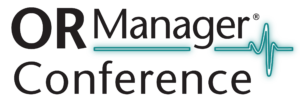Closing keynote: Revolutionizing Healthcare with Artificial Intelligence (AI)—Reducing Administrative Burden and Improving Staff Satisfaction
Editor's Note
“We really need leaders like you who understand healthcare,” said Harvey Castro, MD, MBA, serial healthcare entrepreneur and ChatGPT healthcare advisor, when speaking to OR Manager Conference attendees about adopting artificial intelligence (AI) during the Wednesday morning closing keynote. "But we also need healthcare leaders who understand AI and are able to use the two together."
Dr Castro urged the audience to explore the transformation possibilities that AI tools, specifically ChatGPT, can bring to the table. “This is going to be huge, and I think it's going to change medicine,” he predicted. Administrative tasks consume up to 25% of a physician's time; nurses and other healthcare staff are boggled down by scheduling, record management, and billing tasks, he noted. Using a tool like ChatGPT to help with such tasks can improve staff satisfaction and allow them more time to focus on patient care. “We’re burnt out. Why not use the power of GPT to make our jobs easier?” Dr Castro asked.
His presentation covered the following benefits of using GPT AI technology in healthcare:
- Automation, data management, and accuracy
- Training, support, peer interaction, and feedback
- Efficiency—AI can cut 17% of administrative tasks
- Predictive analytics—AI can identify health risks early (eg, it detected skin cancer at 91% accuracy vs 86% by human dermatologists).
Attendees were shown an example of how AI can not only help with cutting down repetitive and time-consuming tasks, it can also help with delivering specialized patient care. Dr Castro described how one hospital used ChatGPT to deliver better discharge instructions for a 5-year-old patient using more appropriate verbiage and by creating a coloring book. This allowed the healthcare staff to sit and bond with the child while having more confidence that the post-hospital care instructions would be followed.
Using AI in the healthcare industry—and many other industries—has been a controversial topic, however. “We have to be careful when using this technology,” Dr Castro noted. He discussed some of the drawbacks to using this type of technology, including too much dependency on AI and the lack of accessibility to it if it even becomes mainstream. "We need to be aware of the good, the bad, and the ugly," he said. It is important to plan against the worst-case scenarios and not lose the human aspect of delivering patient care.
Despite these potentially harmful effects, Dr Castro urged attendees to see how ChatGPT, and other AI tools, can positively transform the healthcare industry. The medical world is always changing, and “medical knowledge doubles every 30 days"; AI can make this knowledge more accessible and help healthcare staff more efficiently assimilate it. To conclude the session, Dr Castro shared that he uses AI to clone his and his business partner’s voices to create their podcast episodes in minutes. “I know it’s kind of scary, but it’s kind of cool, and it gets the information out quickly,” he said, noting that the possibilities of using AI in these ways to help deliver patient care are endless.
Read More >>


 Free Daily News
Free Daily News